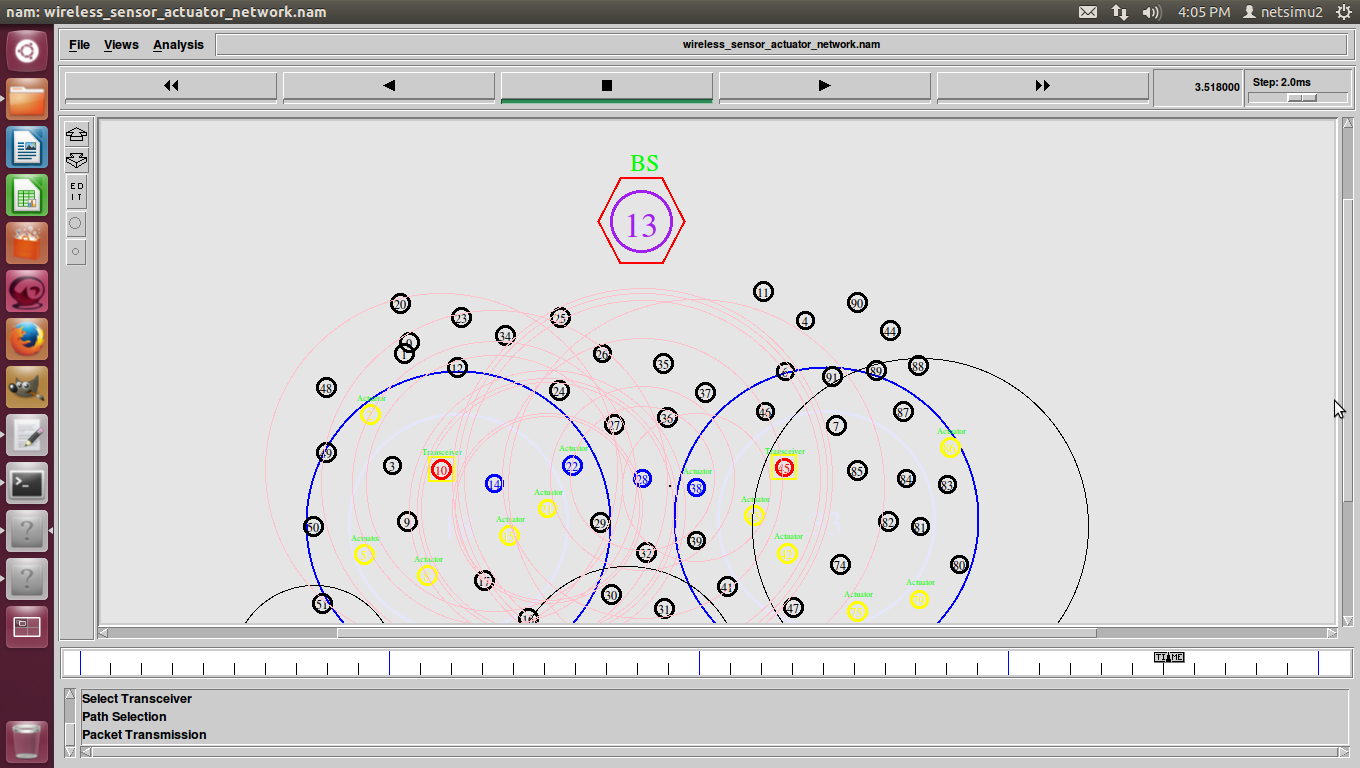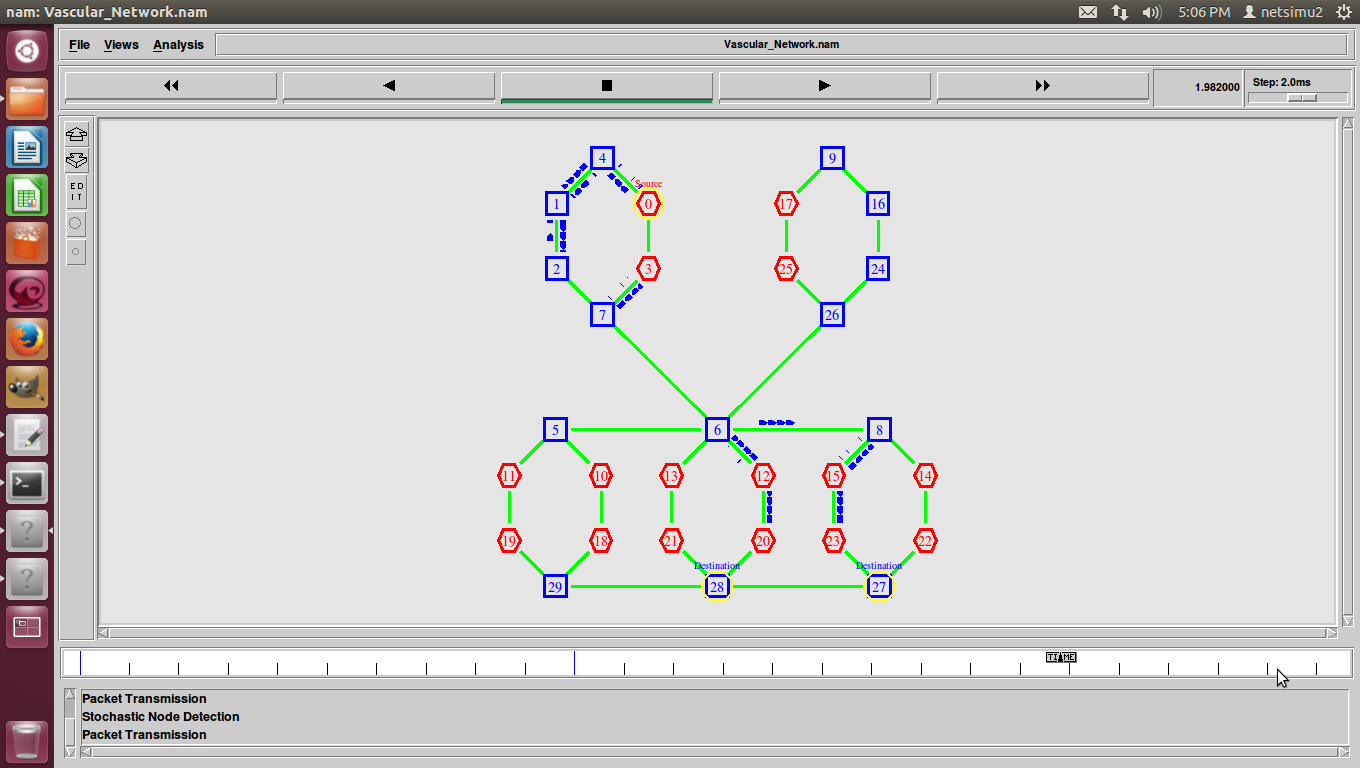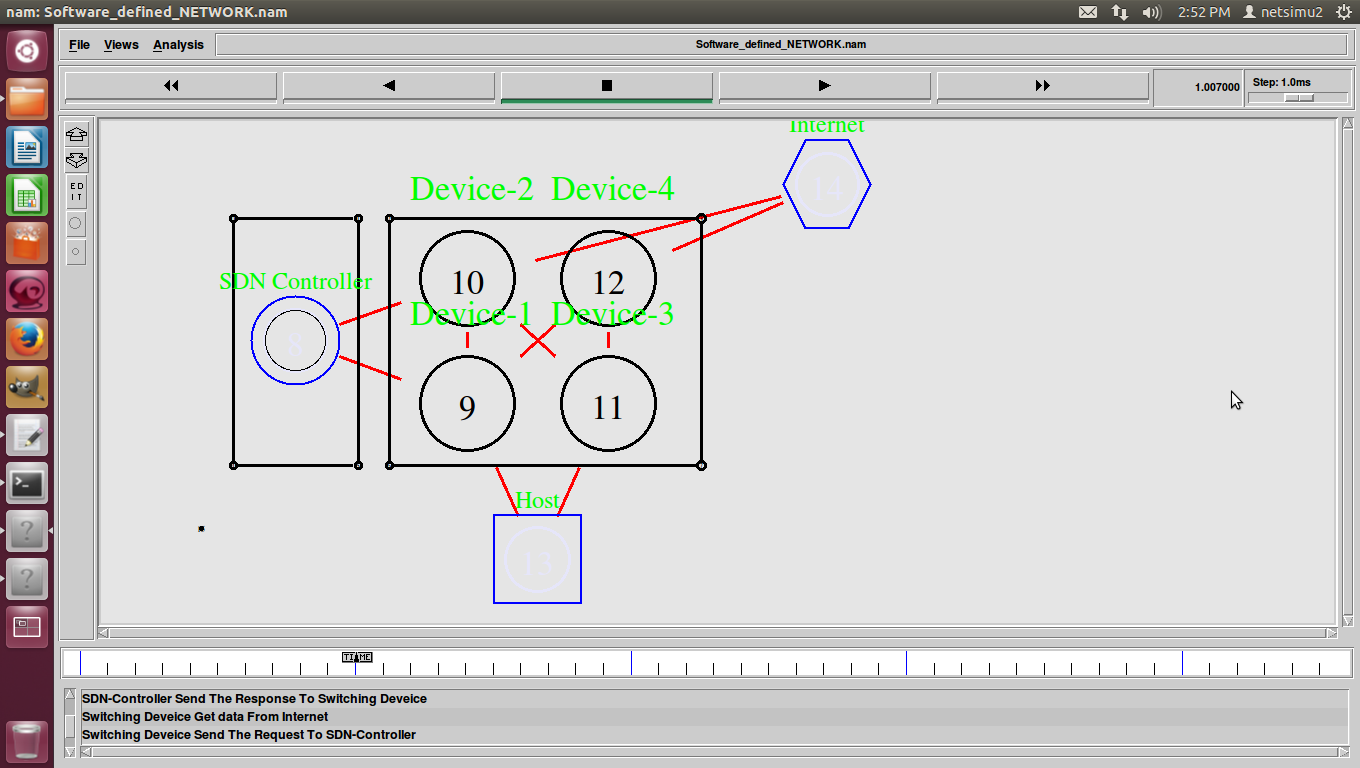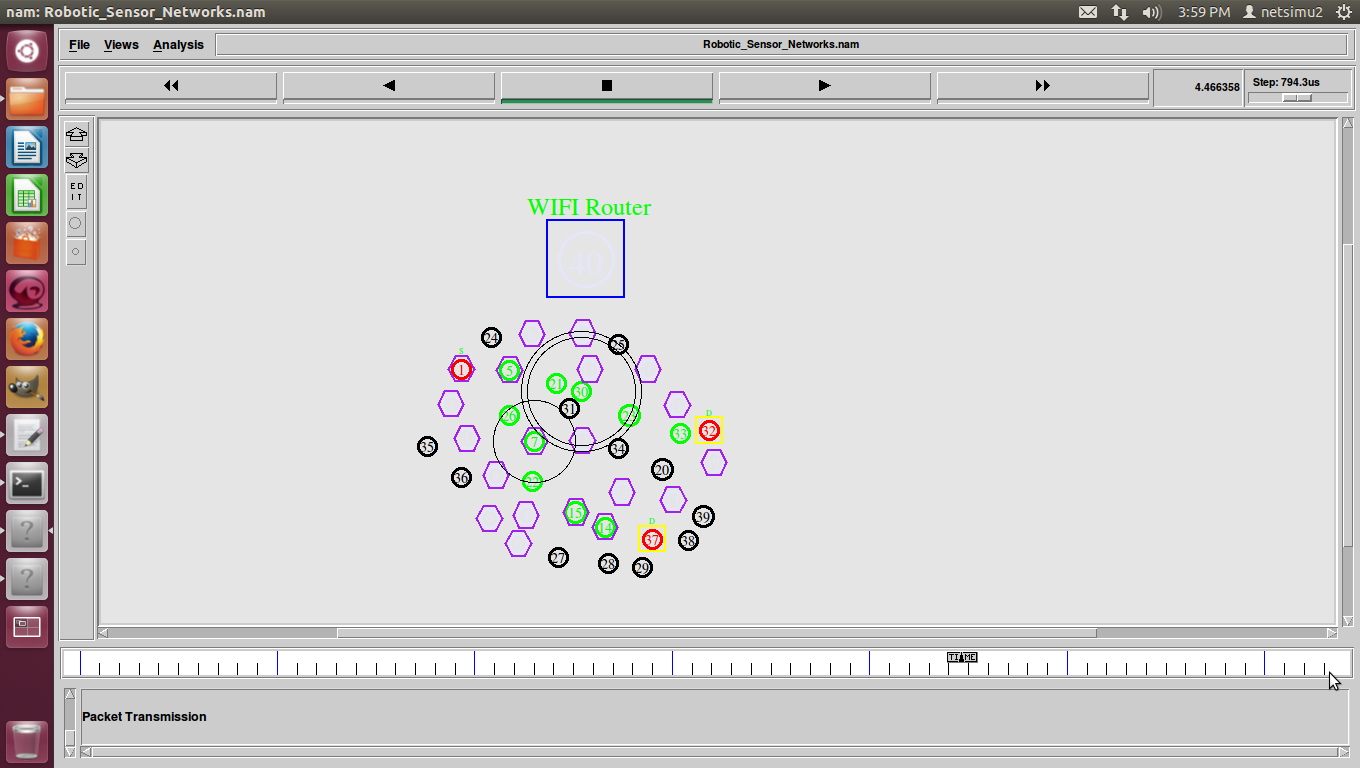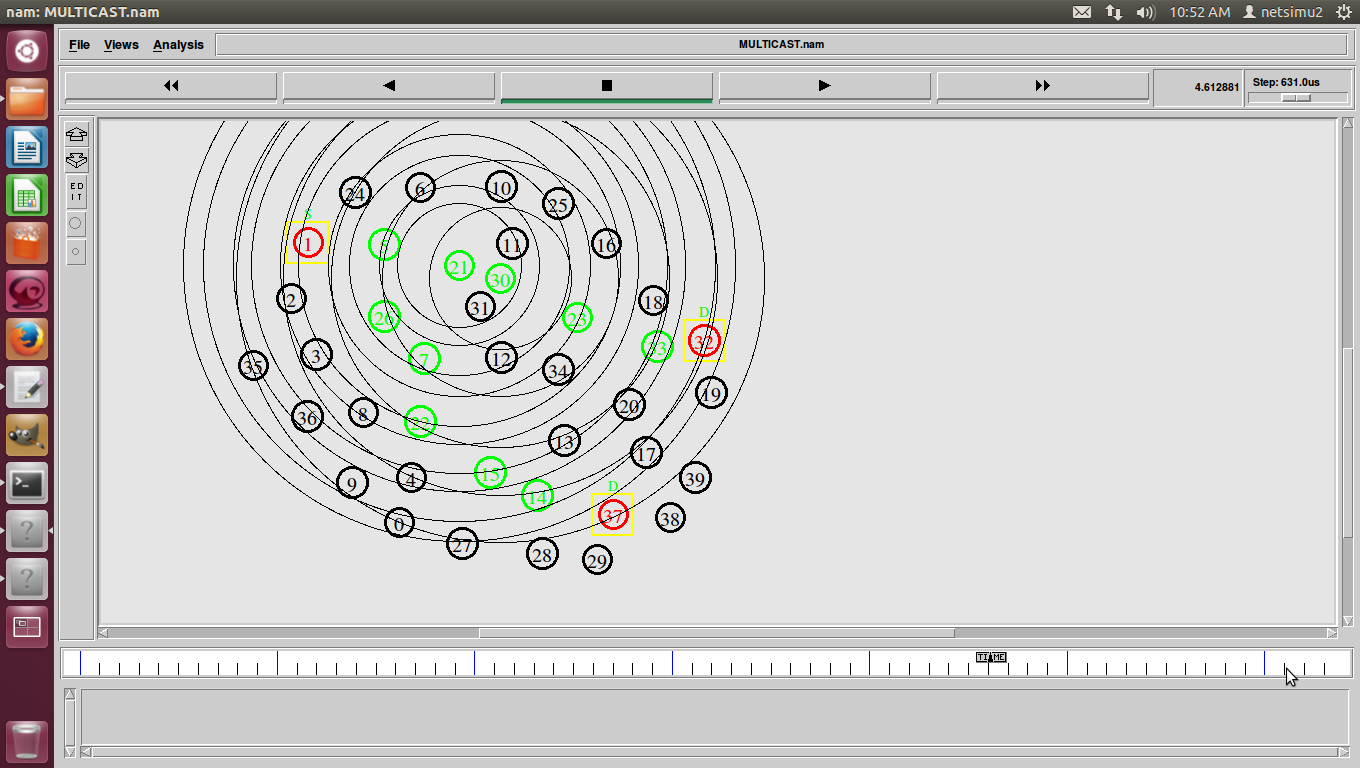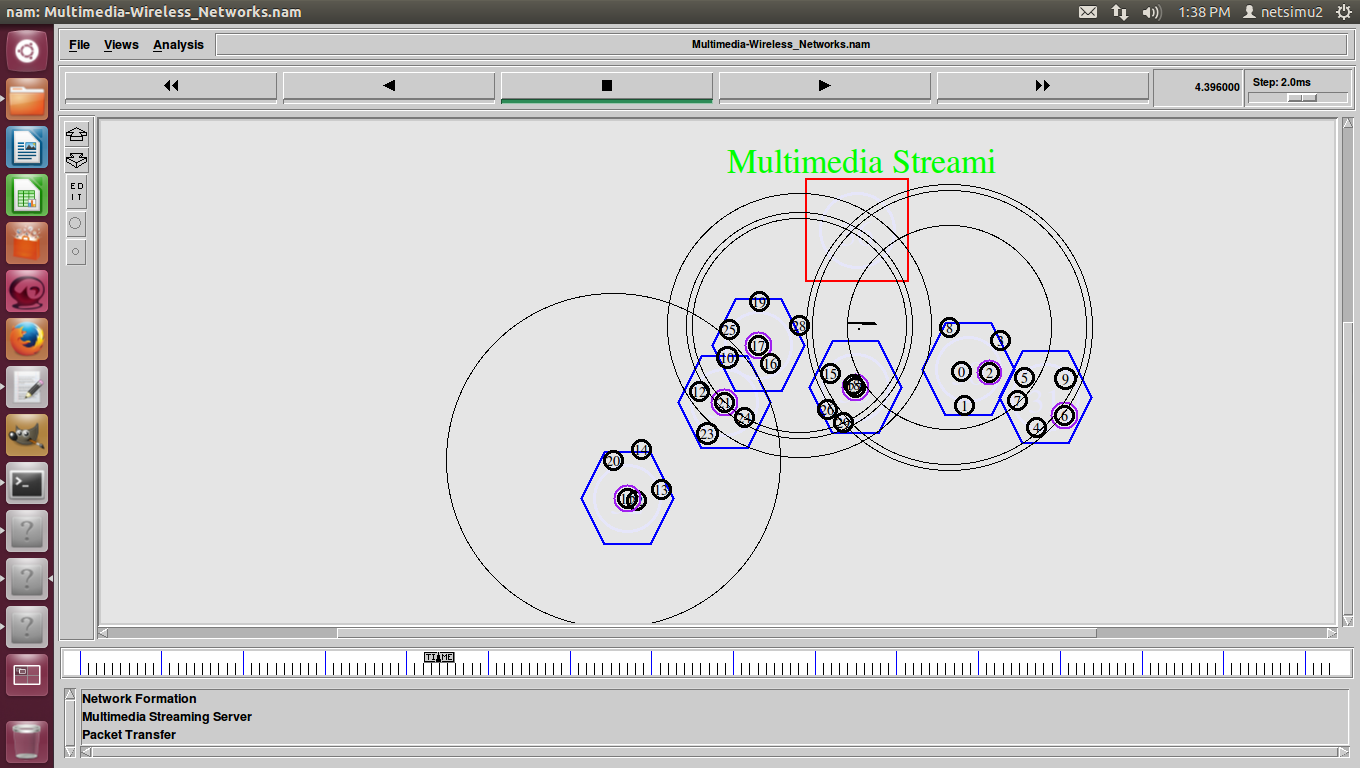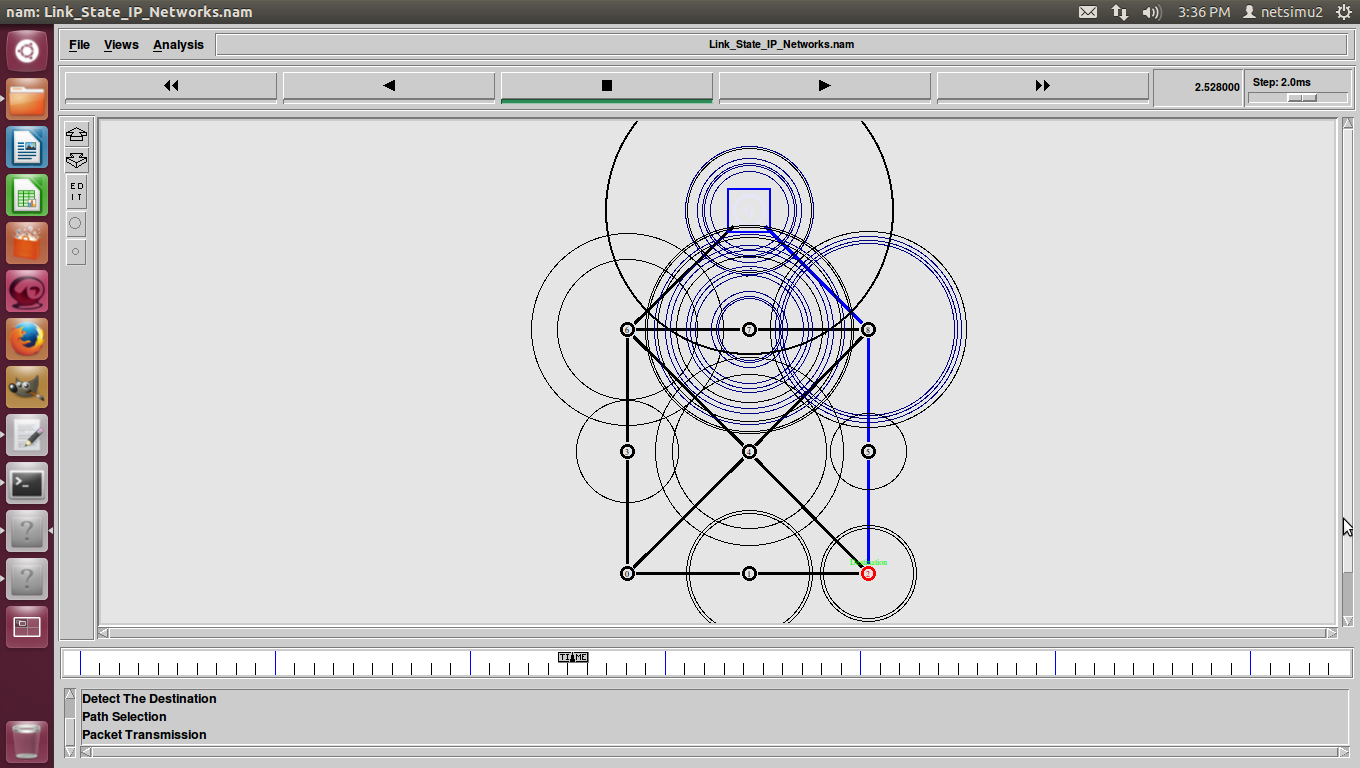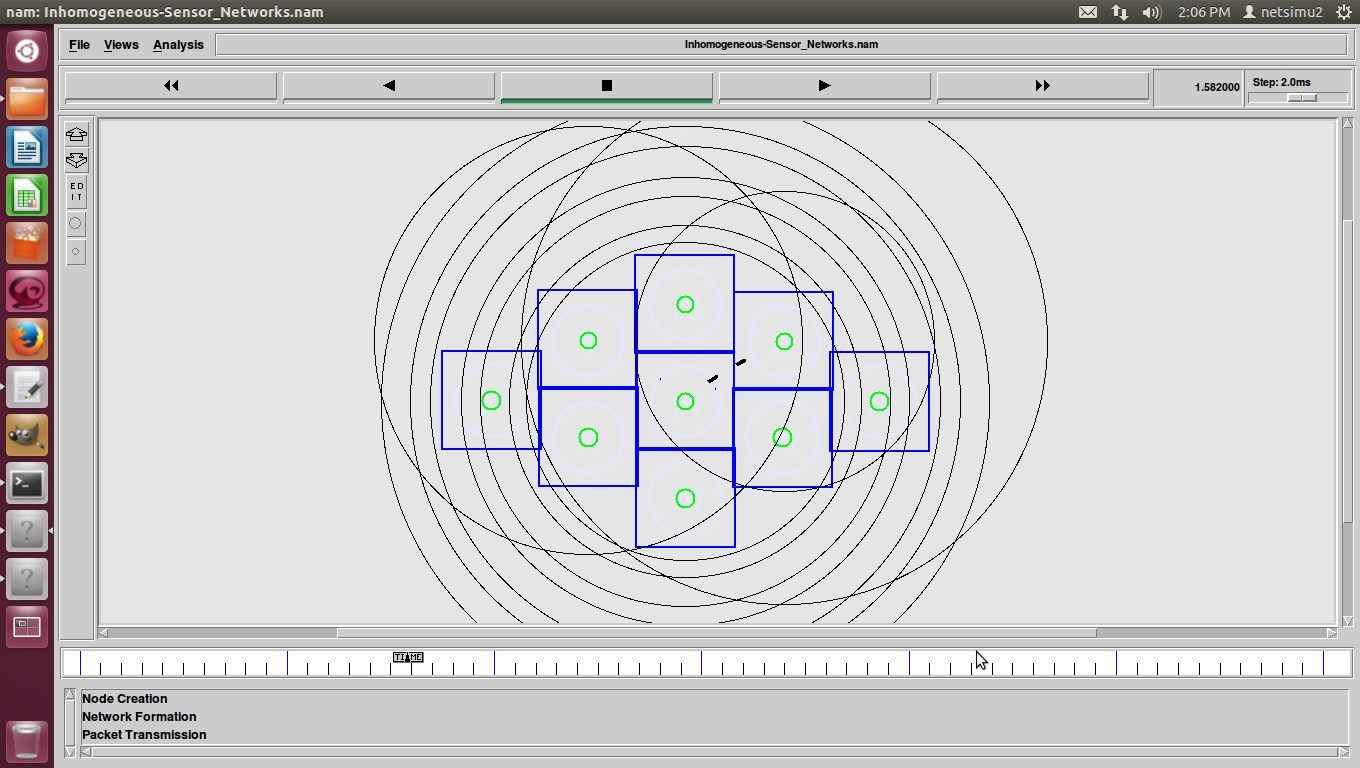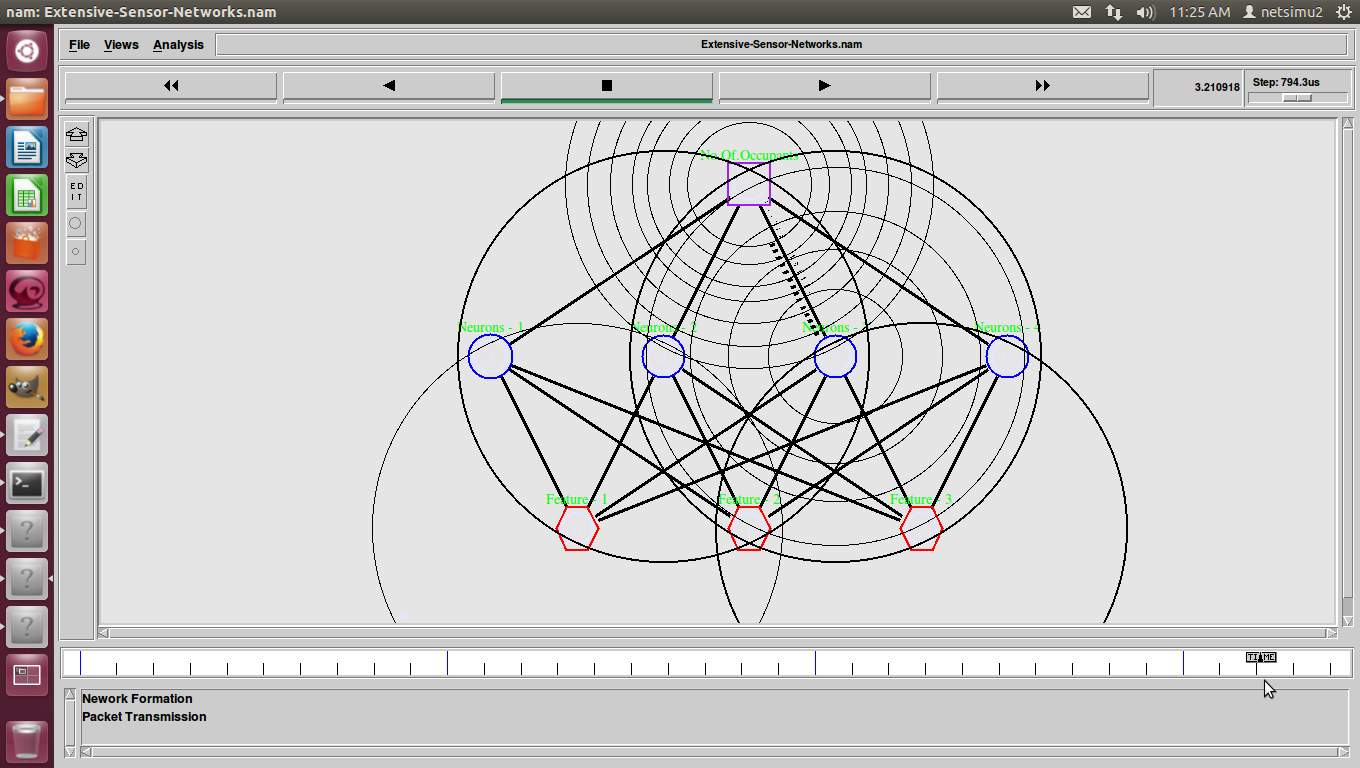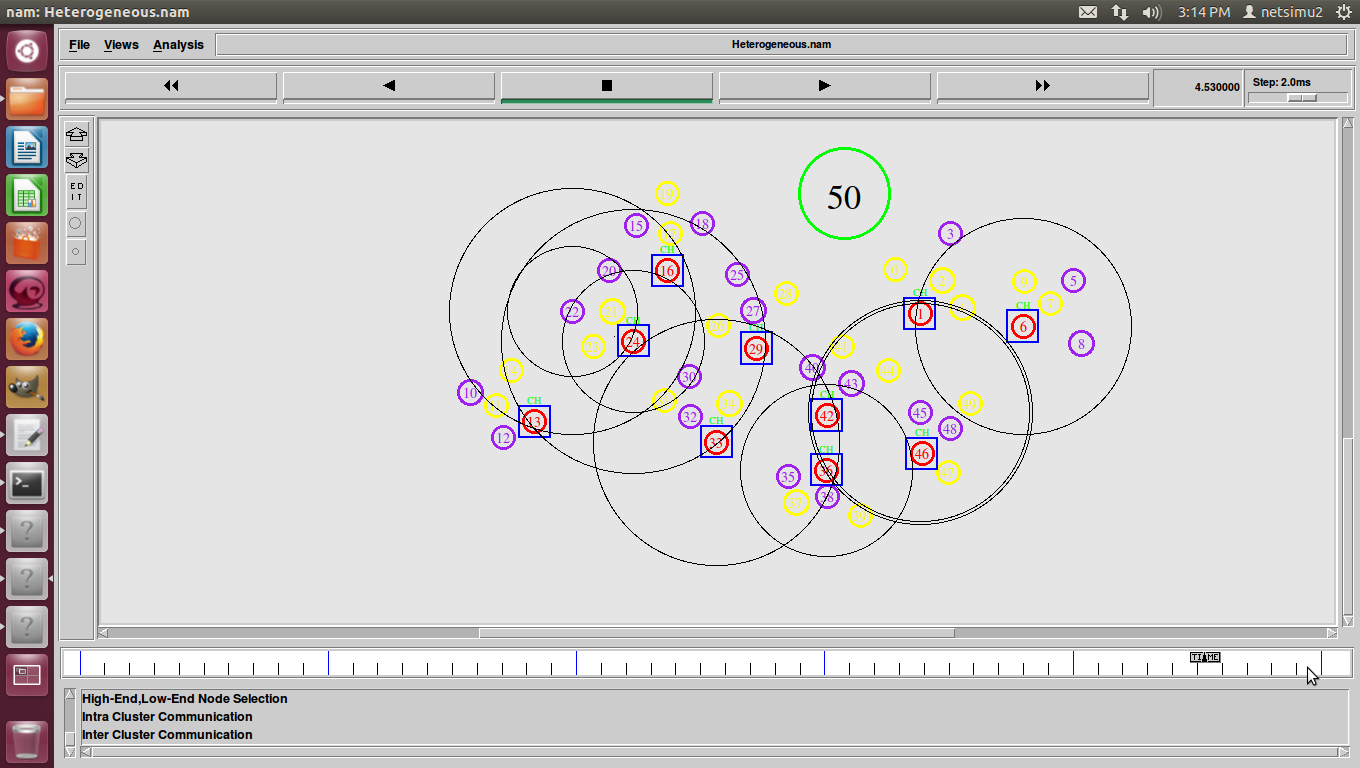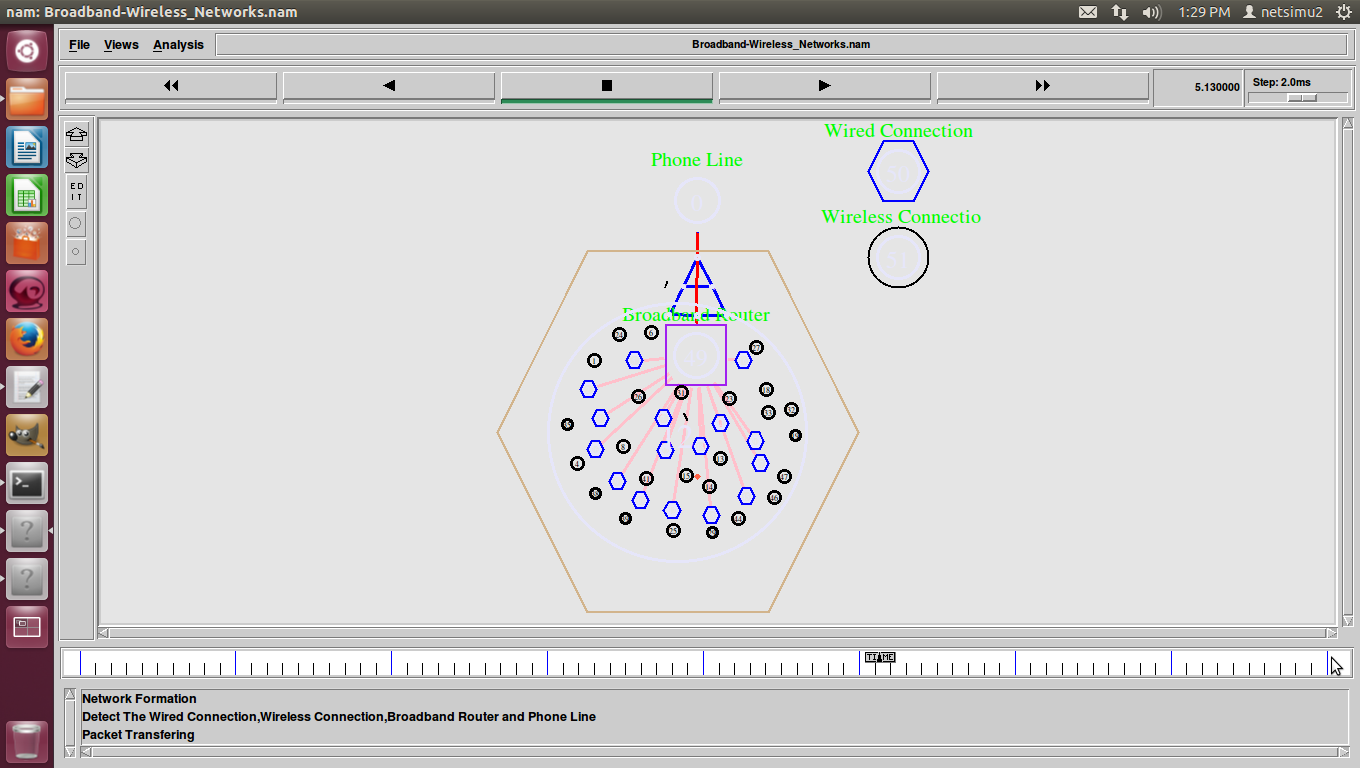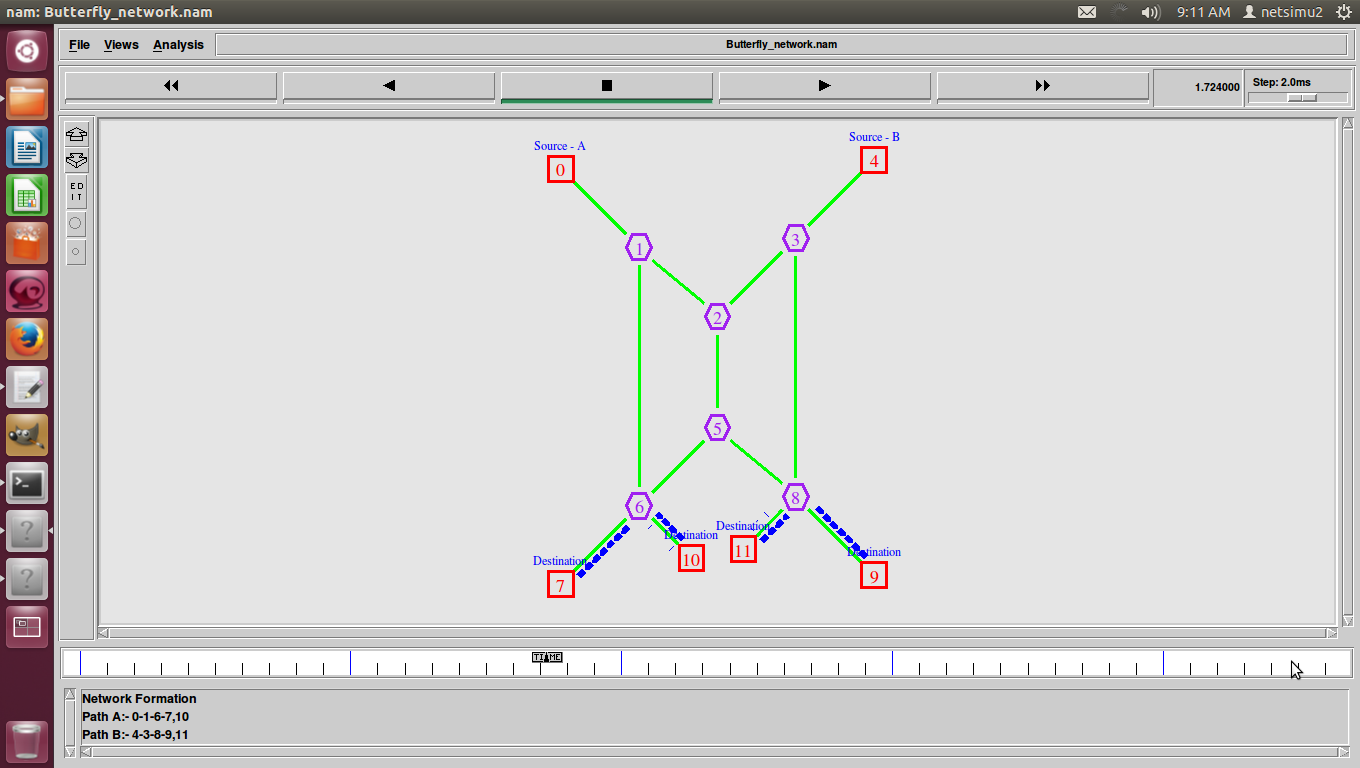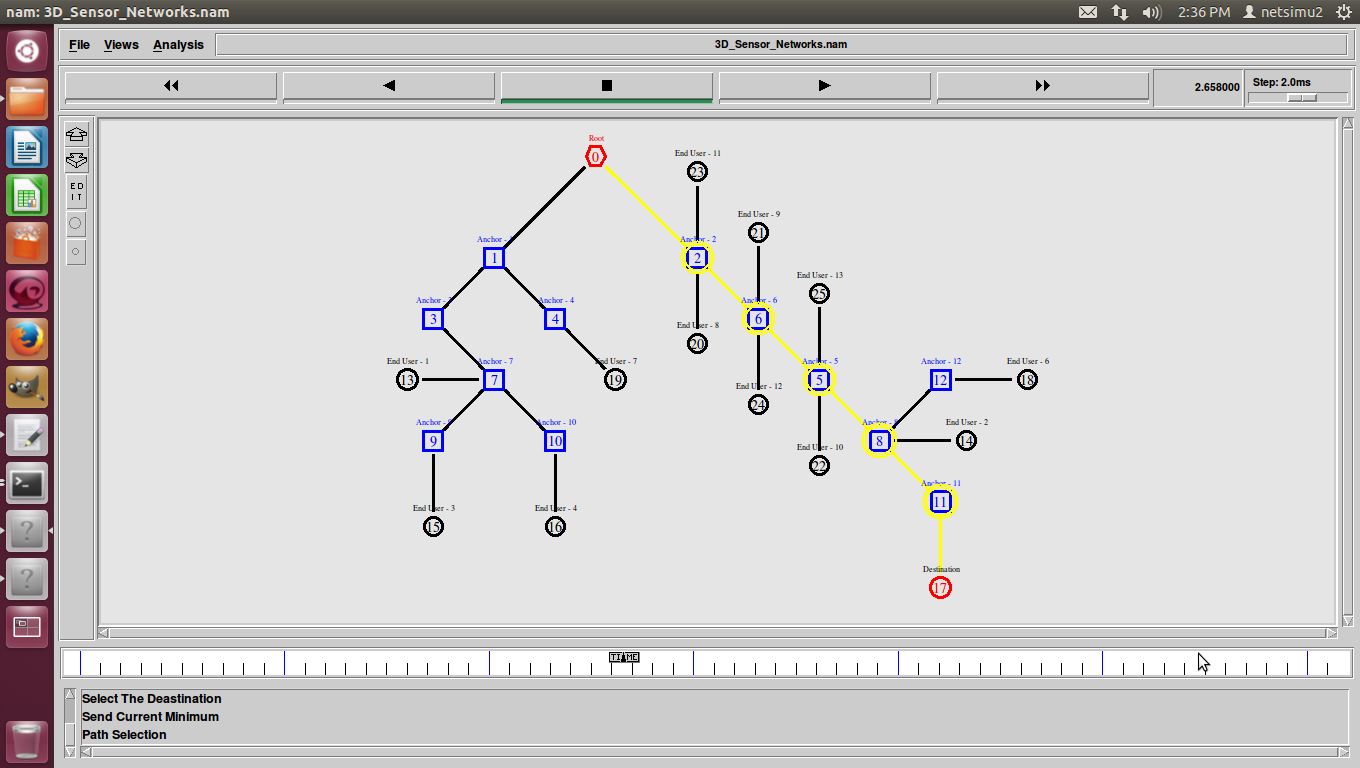ns2 code for vertical handover What is vertical handover??? Vertical handoff refers also to a network node changing the type of connectivity it also uses to access a supporting infrastructure, also usually to support node mobility.
Three main phases of vertical handover:
- System discovery.
- Vertical handoff also in decision.
- Also VHO (Vertical Hand Off) execution.
Sample Ns2 code for Vertical Handover Projects
#check input parameters
if {$argc >= 3 || $argc <1} {
puts ""
puts "Wrong Number of Arguments! "
puts "command is ns scenario1.tcl case \[seed\]"
exit 1
}
global ns
# Define global simulation parameters
Agent/MIHUser/IFMNGMT/MIPV6/Handover/Handover1 set case_ [lindex $argv 0]
# seed the default RNG
global defaultRNG
if {$argc == 2} {
set seed [lindex $argv 1]
if { $seed == "random"} {
$defaultRNG seed 0
} else {
$defaultRNG seed [lindex $argv 1]
}
}
#define coverage area for base station: 50m coverage
Phy/WirelessPhy set Pt_ 0.0134
Phy/WirelessPhy set freq_ 2412e+6
Phy/WirelessPhy set RXThresh_ 5.25089e-10
#define frequency of RA at base station
Agent/ND set maxRtrAdvInterval_ 6
Agent/ND set minRtrAdvInterval_ 2
#define MAC 802_11 parameters
Mac/802_11 set bss_timeout_ 5
Mac/802_11 set pr_limit_ 1.2 ;#for link going down
#wireless routing algorithm update frequency (in seconds)
Agent/DSDV set perup_ 8
#define DEBUG parameters
set quiet 0
Agent/ND set debug_ 1
Agent/MIH set debug_ 1
Agent/MIHUser/IFMNGMT/MIPV6/Handover/Handover1 set debug_ 1
Mac/802_11 set debug_ 0
#Rate at which the nodes start moving
set moveStart 10
set moveStop 130
#Speed of the mobile nodes (m/sec)
set moveSpeed 1
#origin of the MN
set X_src 40.0
set Y_src 100.0
set X_dst 160.0
set Y_dst 100.0
#defines function for flushing and closing files
proc finish {} {
global ns f quiet namtrace
$ns flush-trace
close $f
close $namtrace
exec nam out.nam &
exec awk {
{
if ( $1 == "r" && $5 == "cbr")
{
if($4 == 0 )
{
u += 1
print "u",$12, $2, u*8*500/$2
}
if ($4 == 6 )
{
w += 1
print "w",$12, $2, w*8*500/$2
}
}
}
} out.res > throughput.tr
set S_count 0
set R_count 0
set i 0
exec awk {
{
if ($1 == "+" && $5 == "cbr" && $4 == "4")
{
i++;
S_count++;
Sent_Time[i] = $2;
}
if ($1 == "r" && $5 == "cbr" && $3 == "4")
{
c++;
R_count++;
Recv_Time[c] = $2;
delay[i]= Recv_Time[c] - Sent_Time[i]
total_delay = total_delay + delay[i]
avg_delay = (total_delay/R_count)
if (R_count > 1) {
jitter[i] = delay[i] - delay[i-1]
sum_jitter += jitter[i]
avg_jitter= sum_jitter/ (R_count - 1)
print c, $2, delay[i]
#print c, $2, jitter[i]
}
}
}
} out.res > delay.tr
if {$quiet == 0} {
puts " Simulation ended."
}
exit 0
}
# set global variables
set output_dir .
#create the simulator
set ns [new Simulator]
$ns use-newtrace
#open file for trace
set f [open out.res w]
$ns trace-all $f
set namtrace [open out.nam w]
$ns namtrace-all-wireless $namtrace 200 200
set topo [new Topography]
$topo load_flatgrid 200 200
puts "Topology Created"
# set up for hierarchical routing (needed for routing over a basestation)
$ns node-config -addressType hierarchical
AddrParams set domain_num_ 5 ;# domain number
AddrParams set cluster_num_ {1 1 1 1 1} ;# cluster number for each domain
# 1st cluster: UMTS: 2 network entities + nb of mobile nodes
# 2nd cluster: CN
# 3rd cluster: core network
# 4th cluster: WLAN: 1BS + nb of mobile nodes
# 5th cluster: super nodes
lappend tmp 3 ;# UMTS MNs+RNC+BS
lappend tmp 1 ;# router 0
lappend tmp 1 ;# router 1
lappend tmp 2 ;# 802.11 MNs+BS
lappend tmp 1 ;# MULTIFACE nodes
AddrParams set nodes_num_ $tmp
Tweet







